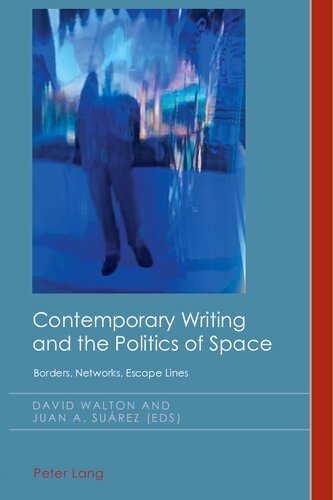

Most ebook files are in PDF format, so you can easily read them using various software such as Foxit Reader or directly on the Google Chrome browser.
Some ebook files are released by publishers in other formats such as .awz, .mobi, .epub, .fb2, etc. You may need to install specific software to read these formats on mobile/PC, such as Calibre.
Please read the tutorial at this link: https://ebookbell.com/faq
We offer FREE conversion to the popular formats you request; however, this may take some time. Therefore, right after payment, please email us, and we will try to provide the service as quickly as possible.
For some exceptional file formats or broken links (if any), please refrain from opening any disputes. Instead, email us first, and we will try to assist within a maximum of 6 hours.
EbookBell Team

4.4
82 reviewsThis collective volume explores questions of space in contemporary literary texts from a range of theoretical perspectives. In addition to mapping the «spatial turn» in literary and cultural studies, this volume also brings together studies that apply spatial theory to the analysis of literary texts. Contributors tackle a broad range of themes, including how prose fiction addresses spaces of intimacy, abjection, espionage, discipline, madness, post-human identities, post-communist cities, the architecture of dystopia, and coercive medical practices. In turn, these themes open up analysis to key areas within contemporary literary and cultural criticism, including the study of sexuality, politics, power, and identity; the configuration of urban, regional, and national spaces and borders; and the delineation of private and public domains. The contributors reflect on diverse authors from English-speaking cultures and focus on a variety of genres and periods while acknowledging recent research in space studies and offering original contributions to what has now become a thriving field.